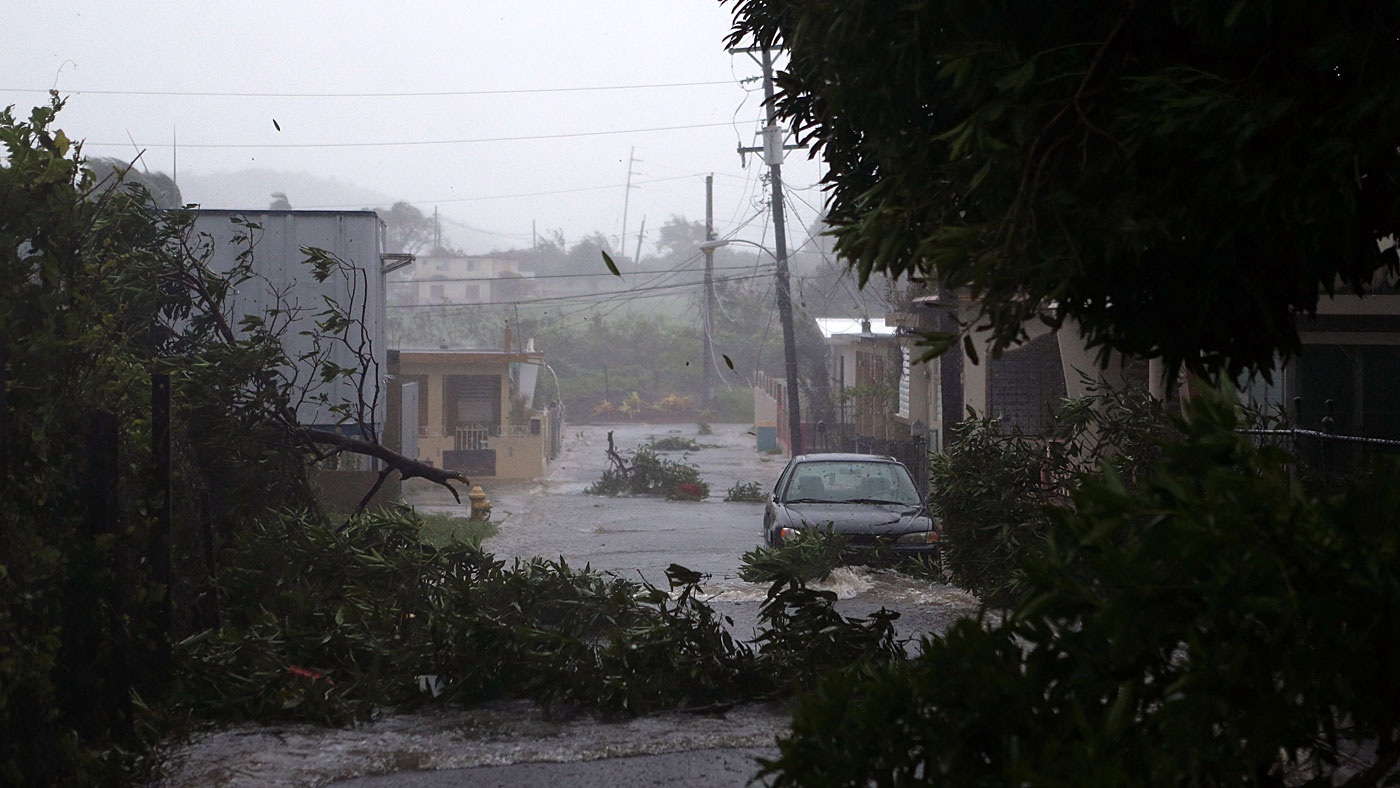Hurricane Irma leaves Barbuda ‘barely habitable’
Winds of 185mph and a 20ft storm surge have swept through the Caribbean

A free daily email with the biggest news stories of the day – and the best features from TheWeek.com
You are now subscribed
Your newsletter sign-up was successful
At least seven people have been killed and thousands left homeless after Hurricane Irma swept through the Caribbean.
The category-five storm first made landfall at Barbuda, where Prime Minister Gaston Browne reported that one child had died and about 90% of the structures on the island have been destroyed.
"It is absolute devastation," he said. "The island is literally under water. In fact, I'm of the view that, as it stands now, Barbuda is barely habitable," Browne said.
The Week
Escape your echo chamber. Get the facts behind the news, plus analysis from multiple perspectives.

Sign up for The Week's Free Newsletters
From our morning news briefing to a weekly Good News Newsletter, get the best of The Week delivered directly to your inbox.
From our morning news briefing to a weekly Good News Newsletter, get the best of The Week delivered directly to your inbox.
The French territories of St Martin and Saint Barthélemy have also suffered significant damage from the storm, with six deaths reported after Irma's 185mph winds and a storm surge of up to 20ft swept across the islands.
"St Martin's airport, the third largest in the Caribbean, has been destroyed, with local officials saying that most buildings on the territory have been levelled," the BBC reports.
Hurricane Irma, reportedly the most powerful storm ever recorded in the Atlantic Ocean, is continuing to move west towards the United States.
The storm passed north of Puerto Rico, causing widespread flooding, and is expected to pass just north of the coast of the Dominican Republic later today, before heading towards Florida.
A free daily email with the biggest news stories of the day – and the best features from TheWeek.com
-
 How to Get to Heaven from Belfast: a ‘highly entertaining ride’
How to Get to Heaven from Belfast: a ‘highly entertaining ride’The Week Recommends Mystery-comedy from the creator of Derry Girls should be ‘your new binge-watch’
-
 The 8 best TV shows of the 1960s
The 8 best TV shows of the 1960sThe standout shows of this decade take viewers from outer space to the Wild West
-
 Microdramas are booming
Microdramas are boomingUnder the radar Scroll to watch a whole movie
-
 Epstein files topple law CEO, roil UK government
Epstein files topple law CEO, roil UK governmentSpeed Read Peter Mandelson, Britain’s former ambassador to the US, is caught up in the scandal
-
 Iran and US prepare to meet after skirmishes
Iran and US prepare to meet after skirmishesSpeed Read The incident comes amid heightened tensions in the Middle East
-
 Israel retrieves final hostage’s body from Gaza
Israel retrieves final hostage’s body from GazaSpeed Read The 24-year-old police officer was killed during the initial Hamas attack
-
 China’s Xi targets top general in growing purge
China’s Xi targets top general in growing purgeSpeed Read Zhang Youxia is being investigated over ‘grave violations’ of the law
-
 Panama and Canada are negotiating over a crucial copper mine
Panama and Canada are negotiating over a crucial copper mineIn the Spotlight Panama is set to make a final decision on the mine this summer
-
 Why Greenland’s natural resources are nearly impossible to mine
Why Greenland’s natural resources are nearly impossible to mineThe Explainer The country’s natural landscape makes the task extremely difficult
-
 Iran cuts internet as protests escalate
Iran cuts internet as protests escalateSpeed Reada Government buildings across the country have been set on fire
-
 US nabs ‘shadow’ tanker claimed by Russia
US nabs ‘shadow’ tanker claimed by RussiaSpeed Read The ship was one of two vessels seized by the US military